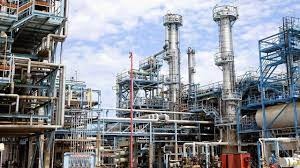In a significant legislative move, the Senate has initiated the process of amending the Niger-Delta Development Commission (NDDC) Act to include Anambra among the list of oil-producing states. Sponsored by Senator Tony Nwoye from Anambra North, the proposed enactment aims to amend Section 2(1)(b) of the NDDC Establishment Act CAP N 86 LFN 2004.
Two years ago, the Revenue Mobilisation Allocation and Fiscal Commission (RMAFC) approved Anambra’s inclusion in the list of oil-producing states. RMAFC attributed 11 oil wells to the state, making it eligible for the 13 per cent derivation fund, a benefit accorded to minerals-producing states in Nigeria. However, the NDDC has not yet granted Anambra the status of an oil-producing state.
During the last plenary session presided over by Senate President Godswill Akpabio, Senator Nwoye’s bill underwent its first reading after being introduced by Senate Leader Opeyemi Bamidele. The short title of the bill was read by the Senate clerk, Barrister Chinedu Akubueze.
An overview of the bill indicates that Section 2(1)(b) of the Principal Act is proposed to be amended by inserting Anambra State as a new subparagraph (iii) and renumbering the existing subparagraphs. Additionally, Section 4 of the Act is set to be repealed, with the inclusion of Anambra State and renumbering of existing paragraphs.
The proposed amendment also involves inserting “Anambra” immediately after “Akwa-Ibom” in Section 30 of the Commission’s Principal Act. Currently, the 2000 Act establishing the NDDC recognizes nine states as oil-producing, namely Ondo, Edo, Delta, Bayelsa, Rivers, Imo, Abia, Cross River, and Akwa Ibom.
Recent reports suggest that the nation’s economic mainstay is not limited to traditional oil-producing regions, with other states like Anambra already contributing 0.9%. This expansion of recognition highlights the evolving landscape of Nigeria’s resource distribution.










